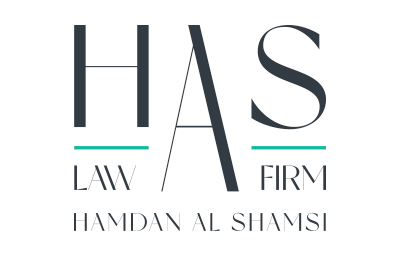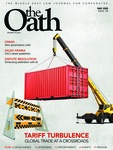TO GC Talk Series #51 – Bad Leavers
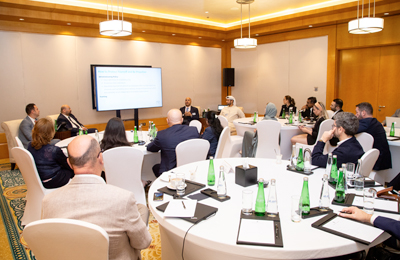
A session by HAS Law Firm on whistleblowing, corporate espionage and misappropriations in two crucial legal domains impacting businesses in the UAE – Mainland Courts and the DIFC/ADGM.
On May 22nd, The Oath GC Talk Series held a session in association with the law firm Hamdan Al Shamsi Law Firm (HAS Law Firm) and legal research partner Lexis Nexis on the topic ‘Bad Leavers – Whistleblowing, corporate espionage & misappropriation’.
The panel discussion featured moderator Hamdan Al Shamsi – founder and senior partner, along with panelists Robert Whitehead – partner, Ayman Al Ashry – senior legal consultant and Mohamed Nour – senior associate.
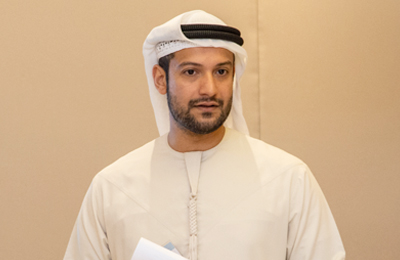
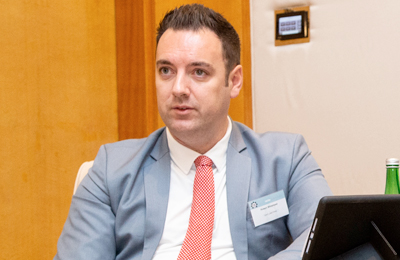
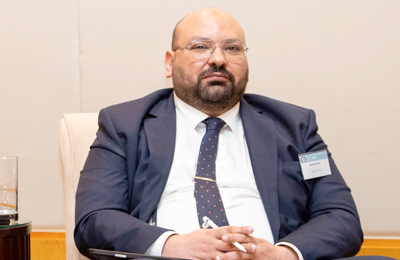
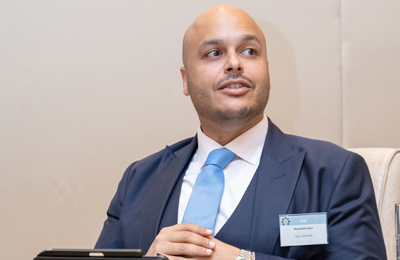 In the Mainland Courts segment, the speakers explored the intricate legal landscapes surrounding cybercrimes, particularly focusing on the theft of trade secrets. They also looked closely at the civil and criminal implications of misappropriation of company funds, offering practical advice to safeguard an organisation’s interests. Turning to the DIFC, the speakers discussed the complexities of data privacy law in the context of theft of trade secrets as it is vital to understand the evolving legislative framework, and the experts provided the in-house counsel audience clarity on compliance measures within the DIFC/ADGM. A summary of the key talking points are noted below.
In the Mainland Courts segment, the speakers explored the intricate legal landscapes surrounding cybercrimes, particularly focusing on the theft of trade secrets. They also looked closely at the civil and criminal implications of misappropriation of company funds, offering practical advice to safeguard an organisation’s interests. Turning to the DIFC, the speakers discussed the complexities of data privacy law in the context of theft of trade secrets as it is vital to understand the evolving legislative framework, and the experts provided the in-house counsel audience clarity on compliance measures within the DIFC/ADGM. A summary of the key talking points are noted below.
Misappropriation of company funds in the UAE mainland is the unauthorised or improper use of funds belonging to a company. It involves embezzlement, fraud, breach of trust or financial misconduct. The penalties for this act may vary depending on circumstances and specific provisions of the Law. In the DIFC/ADGM, and involves the unauthorised use or disclosure of trade secrets and the unauthorised or illegal use of another’s money.
The panel talked about how organisations can protect themselves and take proactive measures against misappropriation of company funds. First, having robust employment contracts and consultancy agreements with personal liability clauses for misconduct of funds by employees, clear grounds for termination in cases of financial misconduct with clauses outlining consequences of such termination, and detailed responsibilities and obligations, are a must. Second, publishing policies such as the ethics and code of conduct policy, anti-bribery and anti-corruption policy, gift policy and the expense reimbursement policy, are important. Third, establishing systems such as regular internal audits, implementing a system where different employees manage separate parts of the financial process and create an internal channel to allow reporting of suspicious financial activities. Finally, corporate governance is also key which includes specifying a limit on monetary transactions and powers in the Memorandum of Association/Shareholder Resolutions and mandating the approval of two authorised individuals for sensitive transactions.
Next the speakers talked at length about cybercrime and theft of trade secrets. In the UAE Mainland, cybercrime covers criminal activities carried out using computers or the internet, hacking, identity theft, phishing, malware distribution, and other illegal activities targeting systems, networks or data. In the DIFC/ADGM, it includes the criminal actions committed on the internet or other networks through digital devices (i.e., such as smartphones or computers) and is mostly regarding data. Theft of trade secrets, as per the UAE Mainland, is the unauthorised acquisition, use or disclosure of confidential information belonging to a company or an individual. It involves proprietary business information, such as formulas, designs, customer lists and marketing strategies. While under the DIFC/ADGM, trade secrets are the intellectual property rights on (confidential) information which can be sold or licensed.
The second half of the session focused on Whistleblowing regimes. A whistleblower reports illegal activities or practices within the organisation. It was interesting to hear from the speakers on what constitutes whistleblowing within the Mainland and the DIFC/ADGM, the applicable laws and the guiding principles. Along with training, it is also important for organisations to have a whistleblowing policy which offers a clear definition of whistleblowing, protection of retaliation for the whistleblower and establish mechanisms providing employees with multiple reporting channels such as hotline, email address, designated personnel within the company, or an independent third-party organisation.
For each segment of the talk, the speakers discussed the applicable laws and regulations in both the Mainland and the DIFC/ADGM, offering the corporate counsel attendees further practical insight with case studies and court precedents. The session ended with an interactive Q&A.
Hamdan Al Shamsi Law Firm (HAS Law Firm) has been one of the preferred Emirati law firms for local litigation cases. The firm has been highly successful with some of the biggest cases handled in Dispute Resolution within the DIFC Court as well as in front of all UAE Courts and have won many awards as best Litigation law firm of the year of 2022 and 2023 by Corporate INTL. The firm recently won the title of the best Employment Team of the year 2024 at the Middle East Legal Awards. The firm thrives on quality and building long-term relationships with their clients by constantly improving their services with systems that support them to deliver better, faster, and more efficiently. HAS Law Firm puts a big emphasis on technological enhancements in all their processes to deliver the highest standards there are in the market.
